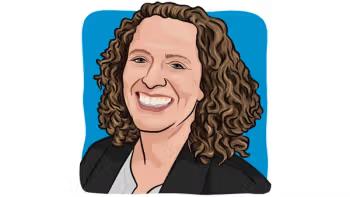
Challenging Surgeons on the ‘Less Is More’ Approach for Breast Cancer
Key Takeaways
- Breast cancer surgery is shifting towards a "less is more" approach, focusing on personalized treatment plans and minimizing interventions.
- Techniques like reduced lymph node removal aim to decrease lymphedema risk, while innovations enhance post-surgical outcomes.
Asking physicians how they perform less-invasive surgeries for breast cancer can help reassure patients that their lymphedema risk is kept in mind.
As surgical techniques for treating breast cancer lean more towards a “less is more” approach, an expert urged patients to ask their care team how they plan on applying that method to their treatment plan.
Some of these techniques include removing fewer lymph nodes to potentially reduce lymphedema (swelling in the arms or legs from lymph buildup) risk, nipple resensitization to potentially help regain sensitivity and hidden scars, among others, noted Dr. Allison A. DiPasquale, director of Breast Oncology at Texas Breast Specialists-Medical City in Dallas.
CURE® spoke with DiPasquale to learn more about the advances made in the surgical treatment of breast cancer and the advice she gives to patients.
Transcript:
I would just say that I challenge patients to ask their physician, “How are you doing less is more for me?” And I challenge the patients to ask their physicians to say, “Tell me about lymphedema,” because I think it is an under-discussed topic. Because they're saying, “I'm doing sentinel nodes (the first lymph node that cancer often spreads to from the primary location). I'm not making big axillary dissections (surgery to remove lymph nodes in the armpit). It's not very risky.” But that's not true, because we're using a lot more chemotherapy like taxane along with radiation on top of our surgery, which can just increase that
So I do feel like patients need to be advocates for themselves because it is an underappreciated or talked about complication. So I challenge all patients, go to your physician [and] say, “How do you do less is more? What are you going to do for me that's going to make me look like myself but still keep me cancer-free? And how are we going to mitigate any complications that can come from surgery, including lymphedema?” So if every patient goes to their doctor and asks that question, I think that doctors will have to answer it. And I think that doctors will have to maybe change if they're not doing the most up-to-date [techniques] … and it's just going to make women's health care even better.
For more news on cancer updates, research and education, don’t forget to




